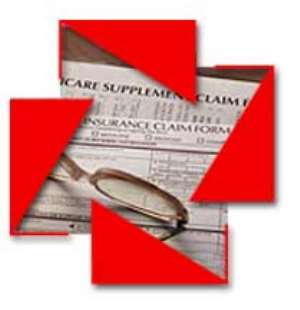
The move to collect 2.5 per cent levy towards the National Health Insurance Scheme (NHIS) began yesterday. Parliament, on July 13, 2004,approved the imposition of the 2.5 per cent levy on some goods and services from August 1 for the implementation of the NHIS, after the adoption of the report by the Committee on Subsidiary Legislation on the National Health Insurance (Commencement of Payment of Levy) Instrument, 2004, LI 1793.
Proceeds from the levy will be channelled into the National Health Insurance Fund (NHIF) to partly finance the NHIS.The Value Added Tax (VAT) Service has been mandated to collect the levy on behalf of the scheme. “We've put in place all necessary structures for a smooth take off,” the Commissioner of the VAT Service, Mr J. F. Odartey-Blankson, said optimistically in an interview last Friday.
“Generally, the awareness has gone down well and we don't anticipate any problems when the levy starts,” he added. Most shops and businesses across the country were closed yesterday but the Graphic found out that a few business entities on the Oxford Street in Osu, Accra, which opened were not charging the levy.
Attendants at Papaye Fast Foods, Top In Town Supermarket and Penta Hotel explained that they were not charging the levy because “today is Sunday” and expressed the hope that they would start charging it from today.Some of the attendants seemed not to know anything or much about the NHIL even though they admitted that VAT Service officials had visited their premises.
At Steers Restaurant, also on the Oxford Street, the Development Manager, Mr Emmanuel Dodoo, said they were finding it difficult to adjust their cash register receipt machine to indicate the separate VAT and NHIL, charges. He said for the time being, management had decided to add the NHIL to the VAT, while making arrangements with Cosmos, a computer programming company based in South Africa.
Goods and services that are exempted from the levy include medical services and essential drugs approved by the Ministry of Health, mosquito nets, goods for the disabled, agricultural products made in Ghana and sold in the raw state, agricultural and fishing inputs and domestic use of electricity.
Others are transportation fares, petroleum products, rent, excluding hotel accommodation and warehousing, export products and emergency relief items approved by Parliament. Mr Odartey-Blankson said new invoices, indicating the 12.5 per cent VAT and the 2.5 per cent NHIL charges, had been distributed to all local VAT offices throughout the country.
The VAT Commissioner, however, said in order to reduce cost and avoid waste, the service had given a one-month grace period to all VAT registered institutions, who are still holding stock of the old invoice to continue to use both invoices for this month.
Under this dispensation, VAT registered entities are required to clearly indicate the 12.5 per cent VAT and 2.5 per cent NHIL and also state the total of the two charges on the old invoice.




 SSNIT must be managed without gov’t interference – Austin Gamey
SSNIT must be managed without gov’t interference – Austin Gamey
 Ejisu by-election could go either way between NPP and independent candidate — Gl...
Ejisu by-election could go either way between NPP and independent candidate — Gl...
 We never asked ministers, DCEs to bring NPP apparatchiks for returning officer r...
We never asked ministers, DCEs to bring NPP apparatchiks for returning officer r...
 No one denigrated the commission when you appointed NDC sympathizers during your...
No one denigrated the commission when you appointed NDC sympathizers during your...
 Used cloth dealers protests over delayed Kumasi Central Market project
Used cloth dealers protests over delayed Kumasi Central Market project
 A/R: Kwadaso onion market traders refuse to relocate to new site
A/R: Kwadaso onion market traders refuse to relocate to new site
 Dumsor: Corn mill operators at Kaneshie market face financial crisis
Dumsor: Corn mill operators at Kaneshie market face financial crisis
 Jamestown fishermen seek support over destruction of canoes by Tuesday's heavy d...
Jamestown fishermen seek support over destruction of canoes by Tuesday's heavy d...
 Election 2024: EC to commence voter registration exercise on May 7
Election 2024: EC to commence voter registration exercise on May 7
 Public schools rebranding: We’re switching to blue and white, we’re painting all...
Public schools rebranding: We’re switching to blue and white, we’re painting all...
